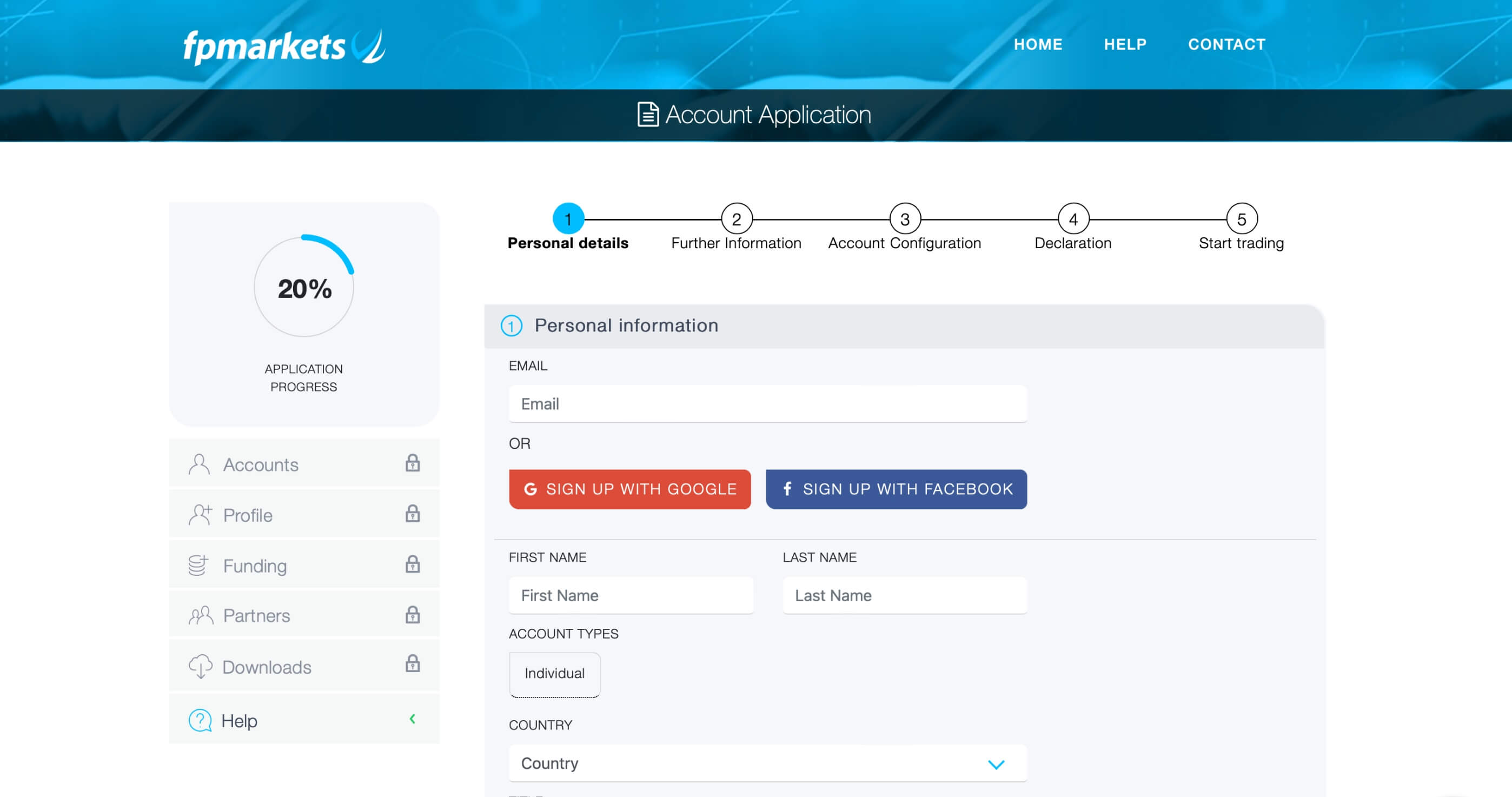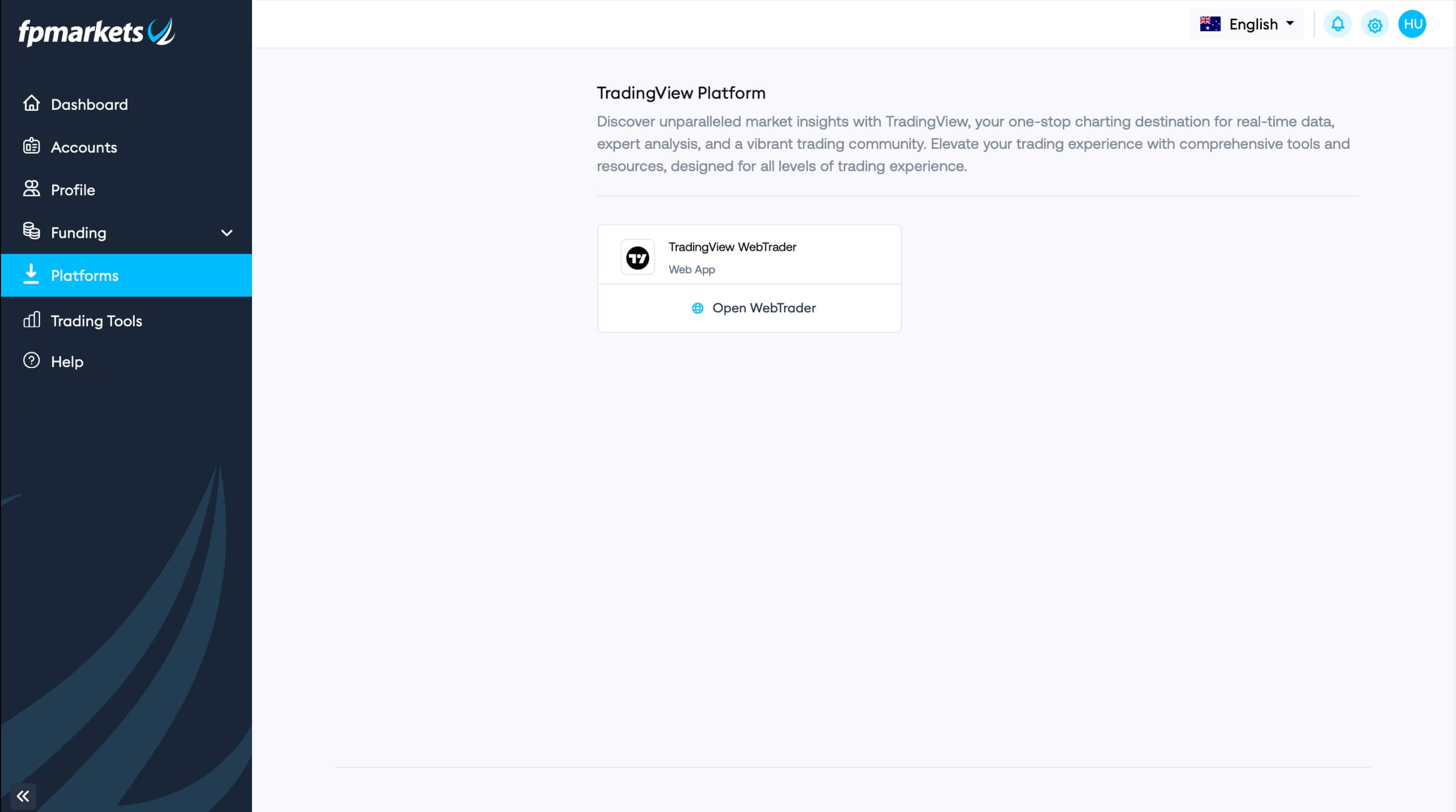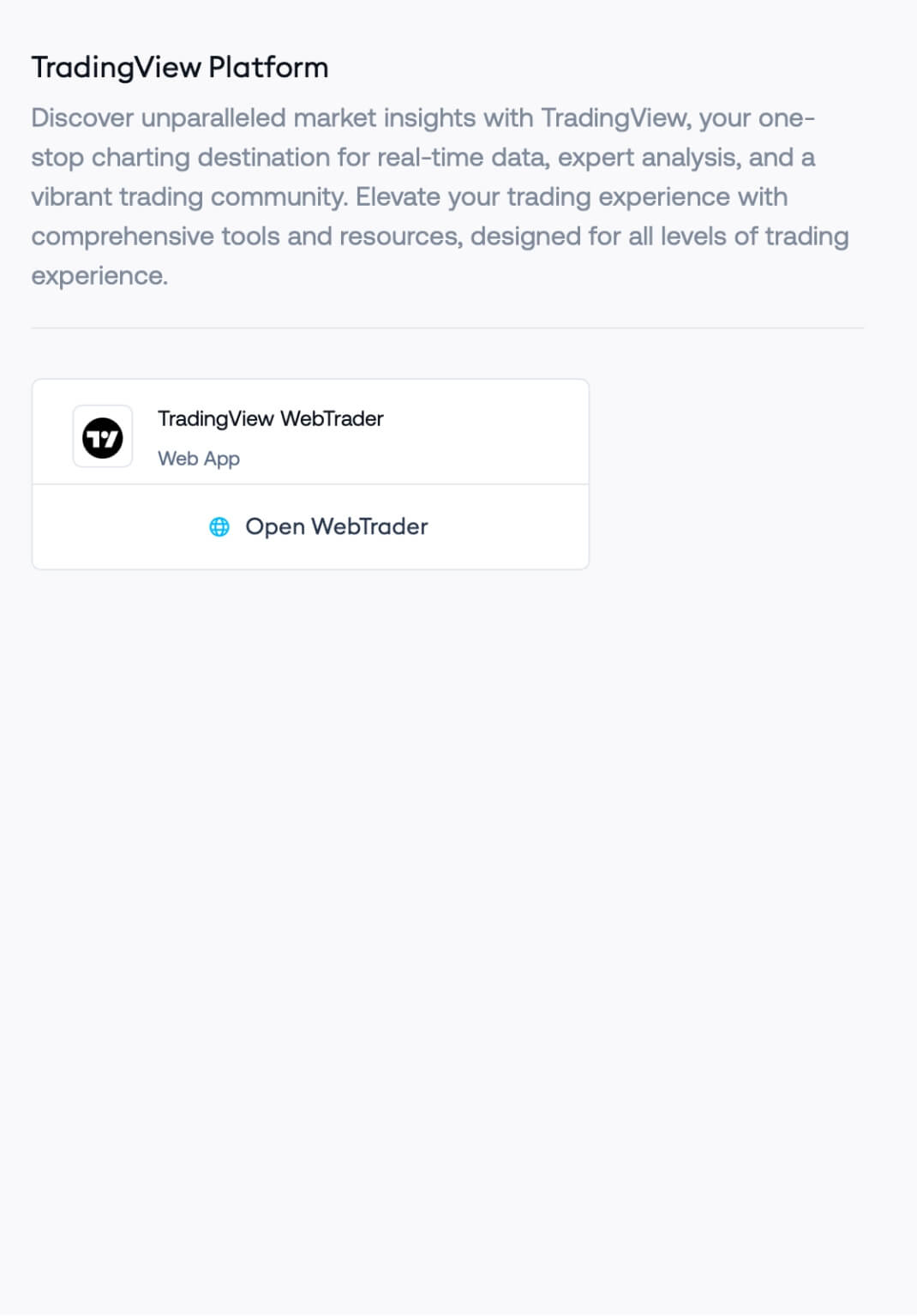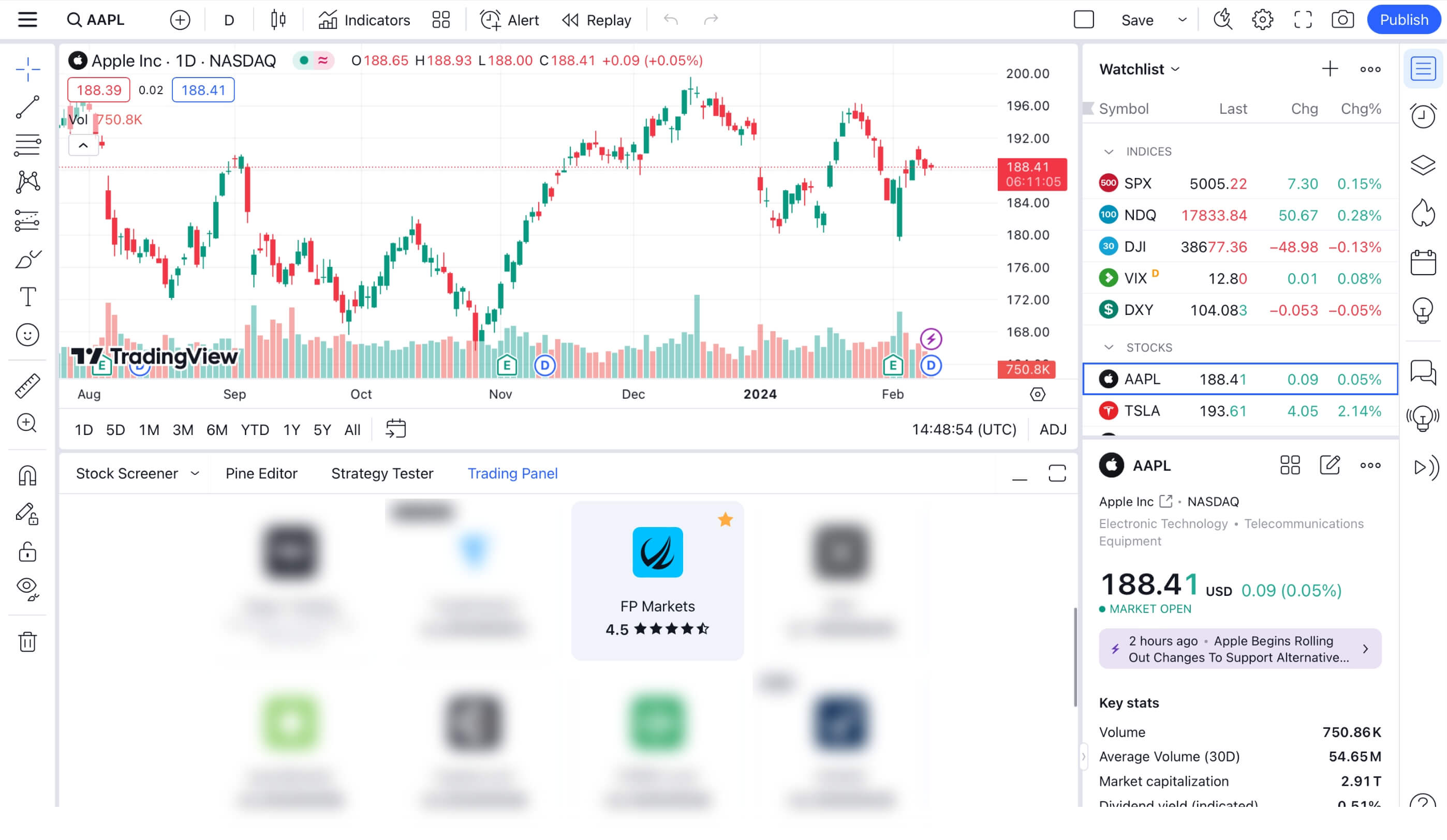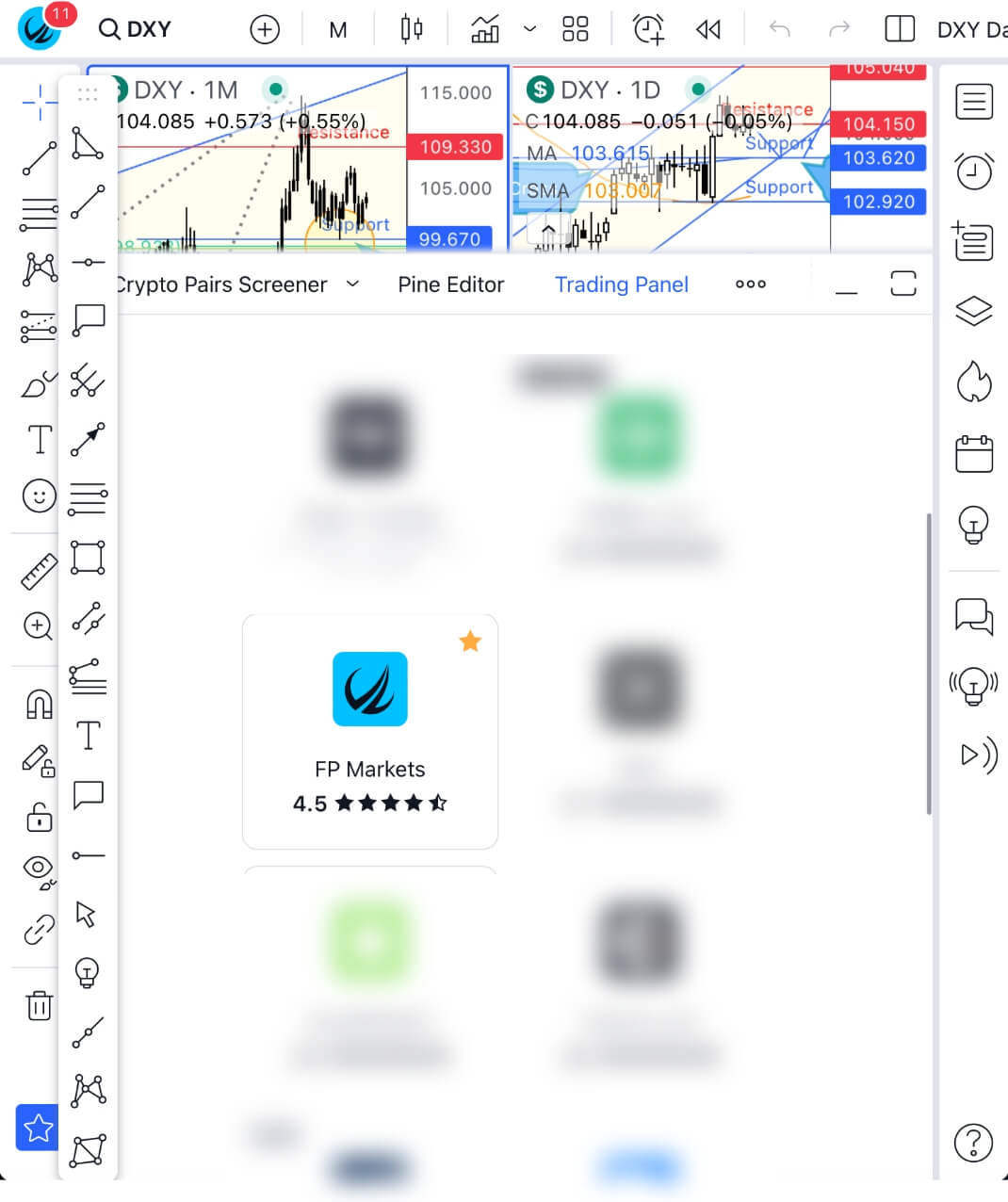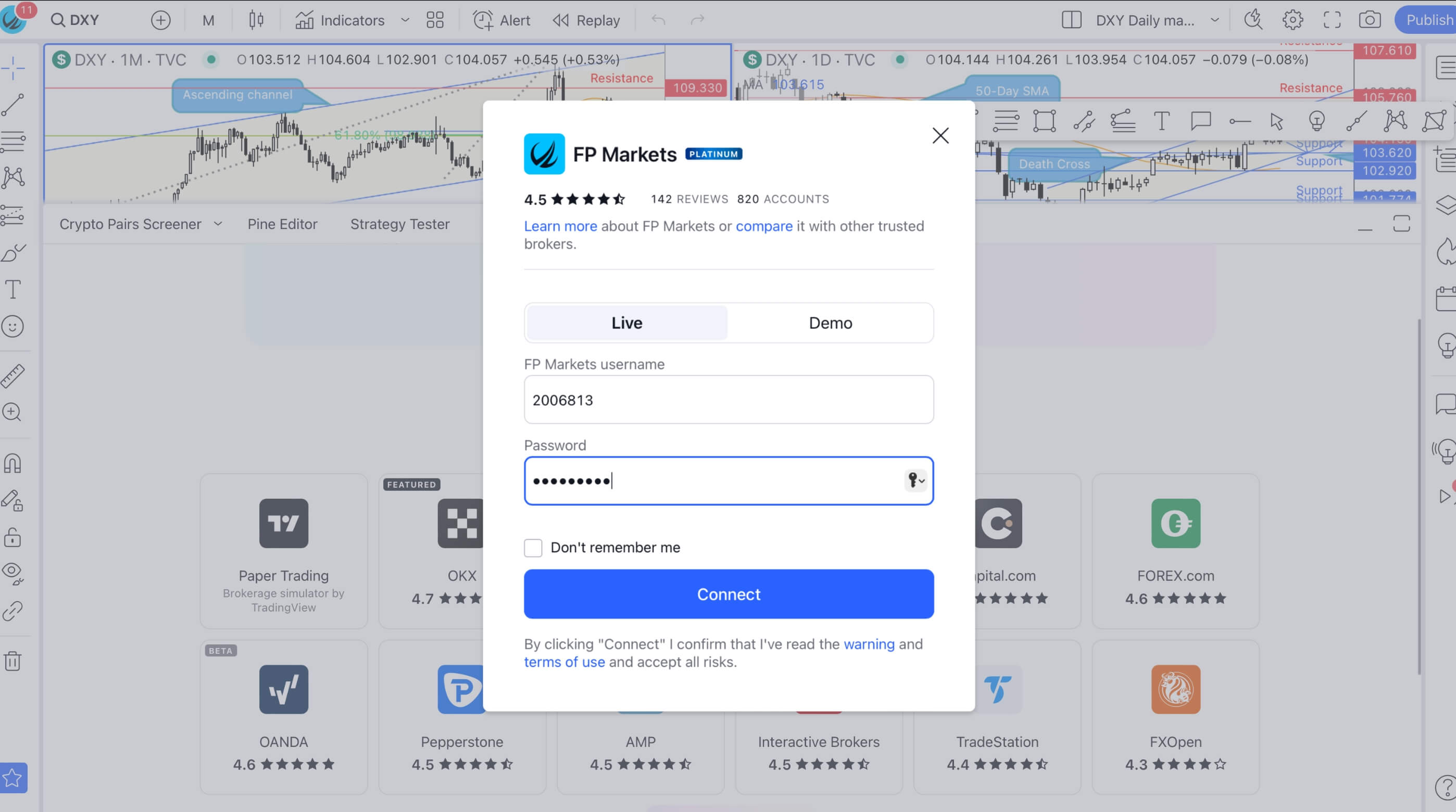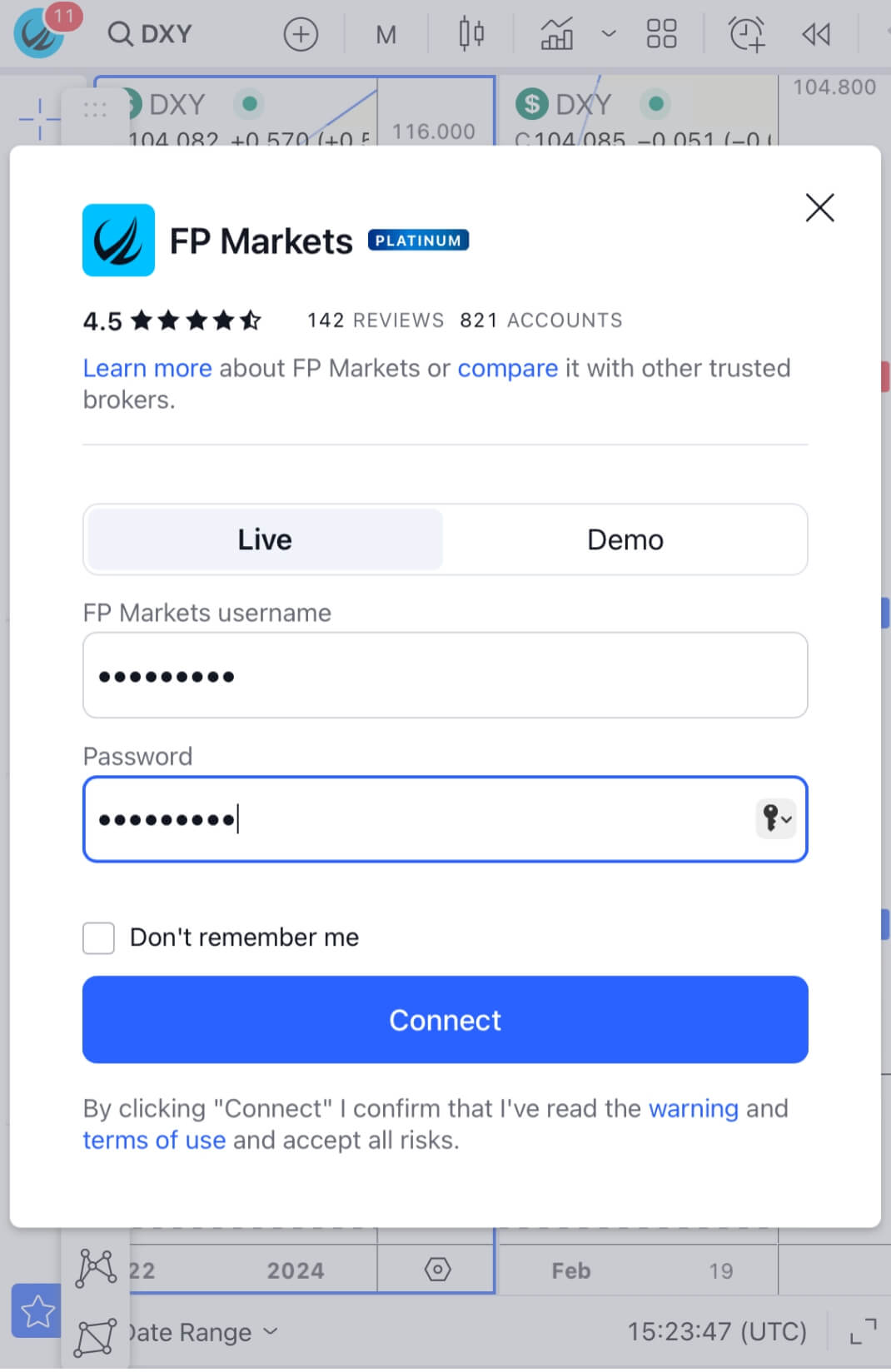TradingView Charting and Trading Platform
TradingView’s financial analysis platform delivers seamless access to the global markets. From the world's most traded currency pairs to small-cap stocks, and more than 50 million users globally that make up a large and well-organised social trading community, TradingView remains the go-to charting solution for all experience levels.
What is TradingView and How Does it Work?
TradingView provides advanced charting functionality through desktop, web-based browsers and mobile devices. With many traders adopting different trading styles and navigating various markets using different strategies, TradingView users have the freedom to explore and employ more than 100,000 public indicators.
Boasting a straightforward login process, easy-to-use charting, and the choice to create custom layouts as well as write and share your indicators and strategies with TradingView’s Pine Script, TradingView is a platform that operates with the trader in mind.


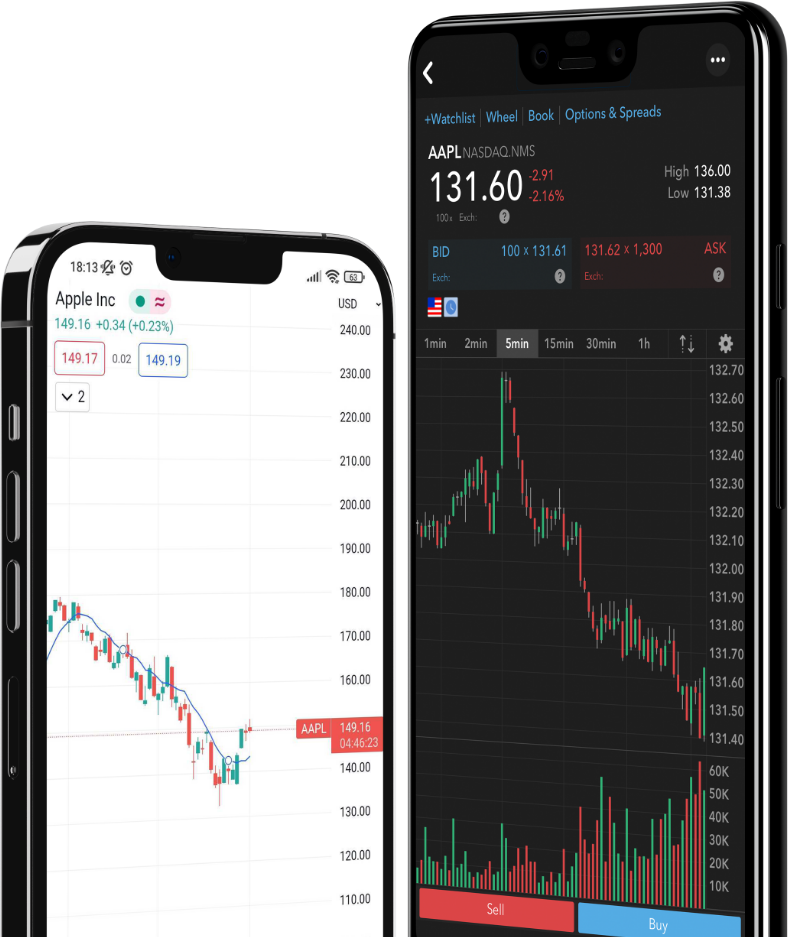
Track and Trade Global Markets with TradingView
With TradingView, traders can track and trade a wide selection of markets. The platform provides comprehensive real-time coverage for global markets, including Stocks, Bonds, Forex, Digital Currencies, Commodities and Indices.
The platform also allows users to easily switch between different financial instruments, employ multi-chart modes, apply various technical analysis tools and indicators specific to each market, conduct correlation analysis through TradingView’s overlay function and access comprehensive fundamental data and more. Regardless of whether you're a multi-market trader or interested in exploring new markets, TradingView supplies the tools and resources needed to track and trade financial markets effectively.




Connect Your Nexus Capital Solution Account to TradingView and Start Trading
Through the Nexus Capital Solution cTrader platform, clients trading with a Live Trading Account can access TradingView’s sophisticated blend of charting features and large social trading community through four simple steps:
